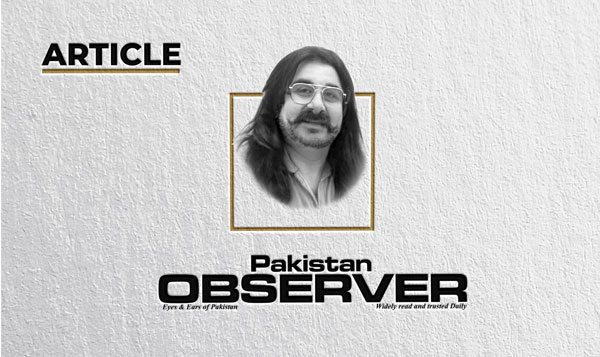Imran’s political tug of war
THE last six months in the country have been exceptionally turbulent and torrential. Imran Khan is Pakistan’s first premier to be ousted via no-confidence vote.
He joined each of his predecessors as prime minister in not lasting five years, the length of parliament’s electoral term in office.
Pakistan’s main opposition parties had been clamoring for Imran Khan’s exit since he came into office calling him selected by the military as opposed to elected and had formed an alliance, (PDM), in the fall of 2020 for this objective.
This time, the opposition gained traction. On the surface, the opposition blamed governance and economic failures under Imran Khan.
Imran has used his rallies and interviews to command media attention, and argues that his government’s fall returned to power the corrupt politicians, responsible for the circumstances of the country.
His supporters, many of them middle class, young, urban and furious at what they see as Imran’s unceremonious, orchestrated ousting, repeat his words on social media.
With this narrative of grievance, Imran aims to undermine the new government’s legitimacy; his party has resigned from parliament and he is calling for fresh elections.
He planned to lead so-called freedom march to Islamabad, to pressurise the government for elections but could not get anything as he expected.
Imran’s supporters distrust anything the new government or the establishment says. In recent weeks, politicians from each side have also resorted to using religion to attack the other side, dangerous in a country where the weaponization of religion can spell a death sentence.
Imran hatched a conspiracy theory to blame for his government’s collapse alleging, without evidence, US regime change for following an independent foreign policy, and claiming local abettors were responsible claims that Pakistan’s National Security Committee has rebuffed.
But Imran and his allies have also alluded to the military being responsible for his exit sometimes in veiled language and sometimes pointing fingers more directly at the “neutrals,” as they now refer to the military.
In doing so, they are testing the limits of political confrontation with the military, receding only when it pushes back on their claims.
Several factors were responsible for the fracture between Imran Khan and the military, who previously had functioned on a much-touted same page.
The biggest was an impasse over the transfer of (DG ISI) in October 2021. Imran refused to sign off on the Director General’s transfer, already approved by the military, for weeks.
The then ISI chief Lt.Gen Faiz Hameed was Imran’s loyalist, and speculation was that Imran wanted him to be around for the next election or even to appoint him the next army chief.
Shehbaz’s overall hesitancy reflects deference to Nawaz and his team, who may have different views, and the fact that he commands an unwieldy coalition of rival parties, who will be competing against each other in the next election.
But the main goal of the PDM was to oust Imran. They did not actually devise an alternate governance plan or economic strategy before coming into power.
That lack of a plan is now showing in the face of Pakistan’s economic crisis. The new government, led by Shehbaz Sharif, faces formidable challenges and not just from Imran.
Nawaz Sharif, who was deposed in 2017 on corruption charges now lives in London, still controls the party, and the government.
Shehbaz, throughout his political career has played second fiddle to the more charismatic Nawaz.
An important question contributing to the political uncertainty in Pakistan is the timing of the next election, which must be held by the summer of 2023.
Imran has made clear that he wants to ride his present momentum to immediate elections. In the days preceding his downfall, he aimed to deprive the then-opposition of a runway in government by extra-constitutionally dissolving parliament, a decision Supreme Court reversed.
The new government, for its part, can use its time in power to turn things in its favor, including resolving outstanding corruption cases.
What matters in Pakistan’s parliamentary system is, which party can get the most electables in local constituencies on their side?
Urban rallies cannot necessarily define how Imran’s party may perform in parliamentary elections.
The other factor that has historically determined which party electables align themselves with, is where the powerful military’s support is leaning.
Will Nawaz Sharif return before the next election? If he does, this could boost the PML-N’s base, but if he does not face prosecution on his return that will bolster Imran’s argument that the Sharifs have politically manipulated the corruption cases against them.
The PML-N also faces considerable hurdles, including an economic crisis partially shaped by exogenous factors, a tussle over power in Punjab, and a president loyal to Imran’s party.
The coalition government has clearly said that it will not go to early elections. Former president Asif Ali Zardari has insisted that elections should not be held before parliament undertakes electoral reform.
Political parties now directly point to the military’s interference in politics, but only when they are in opposition; when they are in government and enjoy that support, they do little to challenge it.
This was true of Imran’s party in power, and it is true of Sharif’s government now. What Pakistan’s soaring political tension amounts to is an opportunistic struggle for power. It has left the country a political tinderbox.
The fundamentals of the system in Pakistan, beneath the intense ongoing political tug of war, remain the same.
What matters for political success is whether you have the support of powerful establishment. Imran has lost the support of establishment which helped him rise to power.
—The writer is editor, book ambassador political analyst and author of several books based in Islamabad.










